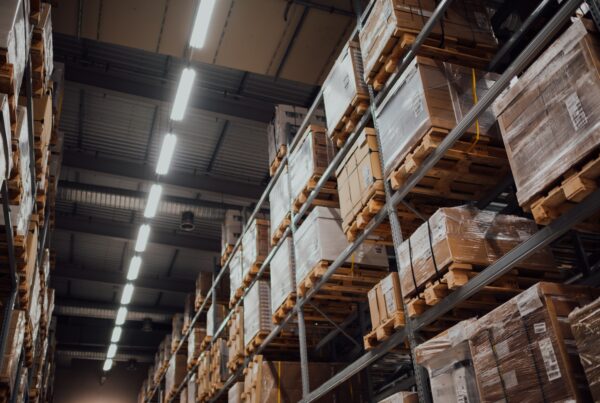Artificial Intelligence (AI) - just a trendy buzzword? More than 40 million euros were invested in research in this area last year due to the fact that many experts see AI as one of the most important growth drivers of all. At the same time, AI has already established itself sustainably in many business areas, including logistics.
Artificial intelligence applications attempt to relieve humans of decision-making processes so that problems and procedures can be handled independently. To this end, algorithms are used that make these decisions and continuously optimize themselves. What is special is that the decision making process does not just take two or three factors into account, but hundreds or thousands of factors derived from huge amounts of data.
AI in Logistics
The logistics sector has been increasingly confronted with more challenges in recent years, especially in view of the rapid growth of e-commerce. Smaller order quantities, higher frequencies - this requires additional logistical effort, which can be simplified through the use of AI and machine learning, giving logistics companies a significant competitive advantage. Artificial intelligence is already finding a wide range of applications in logistics, mostly with the aim of optimizing or forecasting. Basically, the applications of AI in logistics concentrate on three central areas:
1. Prediction of consumer trends:Large amounts of data are evaluated by AI algorithms. They compare internal information such as sales figures and data from social media and other Internet sources. This allows conclusions to be drawn about the consumer intentions of the users and predicts demand behaviour. As a result, inventories can be planned more efficiently and the storage of surplus goods can be avoided.
2. Automation of product movement throughout the warehouse: One of the best known examples of AI in logistics are automated warehouses. They combine two basic systems: warehouse automation and warehouse management software. This allows product transport and placement operations to be carried out autonomously.
3. Optimisation of transport routes and movements within the warehouse: The warehouse management software identifies all current movements within the warehouse and processes them further. For example, KI can thus optimize the routes within a warehouse for order pickers. While pickers used to have to walk long distances from goods to goods, modern AI applications today provide the most efficient route. Even more sophisticated AI solutions are implemented in autonomous robots that automatically bring the goods to the picking station.
In addition, artificial intelligence provides an important contribution in the application of simulation models. These enable the planning of logistic facilities and processes with the aim of predicting dynamic behavior. Logistic processes such as ordering goods often have to be adapted to fluctuations, for example due to the season. This transfer task can be solved efficiently by using intelligent algorithms.
Advantages Overview
- Increase of productivity in the warehouse
- Improved communication which can be taken over by AI and runs error-free
- Improved warehouse management, especially with regard to stock levels and more accurate order forecasts to avoid overstocking
- Reduction of personnel costs
- Use of AI robotics significantly shortens picking work
Challenges
Despite the competitive advantage, only 26% der Logistikunternehmen report actively using AI. There are many reasons for this, but ignorance about AI can be identified as one of the main causes. Many lack the know-how about the possible applications and the implementation of AI in their warehouse or logistics operations. In addition, there are high costs that have to be spent on research and implementation. The IT infrastructure must be in place to make AI efficient. Here, too, many companies still need to upgrade.
Warehousing1 works with digital and innovative technologies, including artificial intelligence. The AI-based software identifies the ideal service provider for our customers from a network of over 500 partners. The use of a comprehensive digital dashboard then allows data flows to be logically tracked, enabling full system integration. This enables us to work in a future-oriented manner and with digital transformation. Please arrange an initial meeting today to discuss your options!



